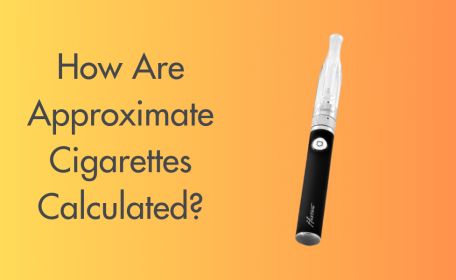Public Health England Advises Employers to Treat Vaping Differently to Smoking

Public Health England has recently released new e-cigarette guidelines which urge employers to see vaping as a stop-smoking method.
Unlike smoking, vaping is not banned by the government in public or private places. Instead, it is up to each property owner to decide whether to allow vaping on their premises. Many workplaces fail to distinguish between smoking and vaping by banning vaping inside and asking vapers to use the designated smoking area. Vaping has also been banned by Network Rail, who manage many of the UK’s largest railway stations.
While we’re not encouraging vapers to cause trouble, there’s no legal support for the ban and all train staff can do to enforce it is politely ask vapers to stop.
But new guidelines from Public Health England (PHE) ask employers to look at vaping in a different light. The authors of the PHE guidelines stress the facts that 1) the vast majority of vapers are actively trying to quit smoking and 2) the best available evidence suggests there is little to no harm to bystanders from “secondhand vapour”.
Many workplaces fail to distinguish between smoking and vaping by banning vaping inside and asking vapers to use the designated smoking area. Vaping has also been banned by Network Rail, who manage many of the UK’s largest railway stations.
While we’re not encouraging vapers to cause trouble, there’s no legal support for the ban and all train staff can do to enforce it is politely ask vapers to stop.
But new guidelines from Public Health England (PHE) ask employers to look at vaping in a different light. The authors of the PHE guidelines stress the facts that 1) the vast majority of vapers are actively trying to quit smoking and 2) the best available evidence suggests there is little to no harm to bystanders from “secondhand vapour”.
New e-cigarette guidelines for the workplace
Public Health England has urged employers to make a distinction between tobacco and vaping in their smoking policies. They have outlined five key principles that will help employers create a policy that’s both appropriate for their organisation and fair on those that choose to vape instead of smoke. Here are the principles identified by Public Health England:- A clear distinction
The current evidence suggests that e-cigarettes carry only a fraction of the risk of traditional cigarettes and furthermore, do not meet the “legal or clinical definitions of smoking.” Any fair vaping policy will treat e-cigarettes differently to cigarettes.
- The risk of harm
It’s conclusive that there is a significant risk of harm to bystanders from secondhand smoke from traditional cigarettes. With e-cigarettes, however, research indicates that the risk of harm from secondhand e-cigarette vapour is extremely low, making it unjustifiable to prohibit e-cigarettes.
- Uptake by young people
As e-juice can contain nicotine – for those who choose to vape it – e-cigarette use is not recommended for young people, vulnerable people, and non-smokers. But by encouraging parents to quit smoking through e-cigarettes, we reduce the number of smoking role models that children see.
E-cigarettes are not a “gateway” to smoking, so policies aimed at preventing children from trying e-cigarettes should not make it more difficult for adults to quit smoking through vaping.
- Supporting smokers to become smokefree
E-cigarettes are used almost exclusively by current and ex-smokers, with only a tiny percentage of vapers having never smoked before. Making vaping an easier choice than smoking, by not prohibiting their use, will prevent vapers from deciding to smoke again. Pushing vapers into the same space as smokers could have a negative effect on their efforts to quit and could undermine their progress, particularly if they are new to vaping.
- Compliance with smokefree law
Smokefree policies should be clearly emphasised, with employers indicating exactly where vaping is and isn’t permitted. Everyone has the right to vape where it is not prohibited, but to prevent confusion, this should be accurately signposted to everyone in the workplace.
























